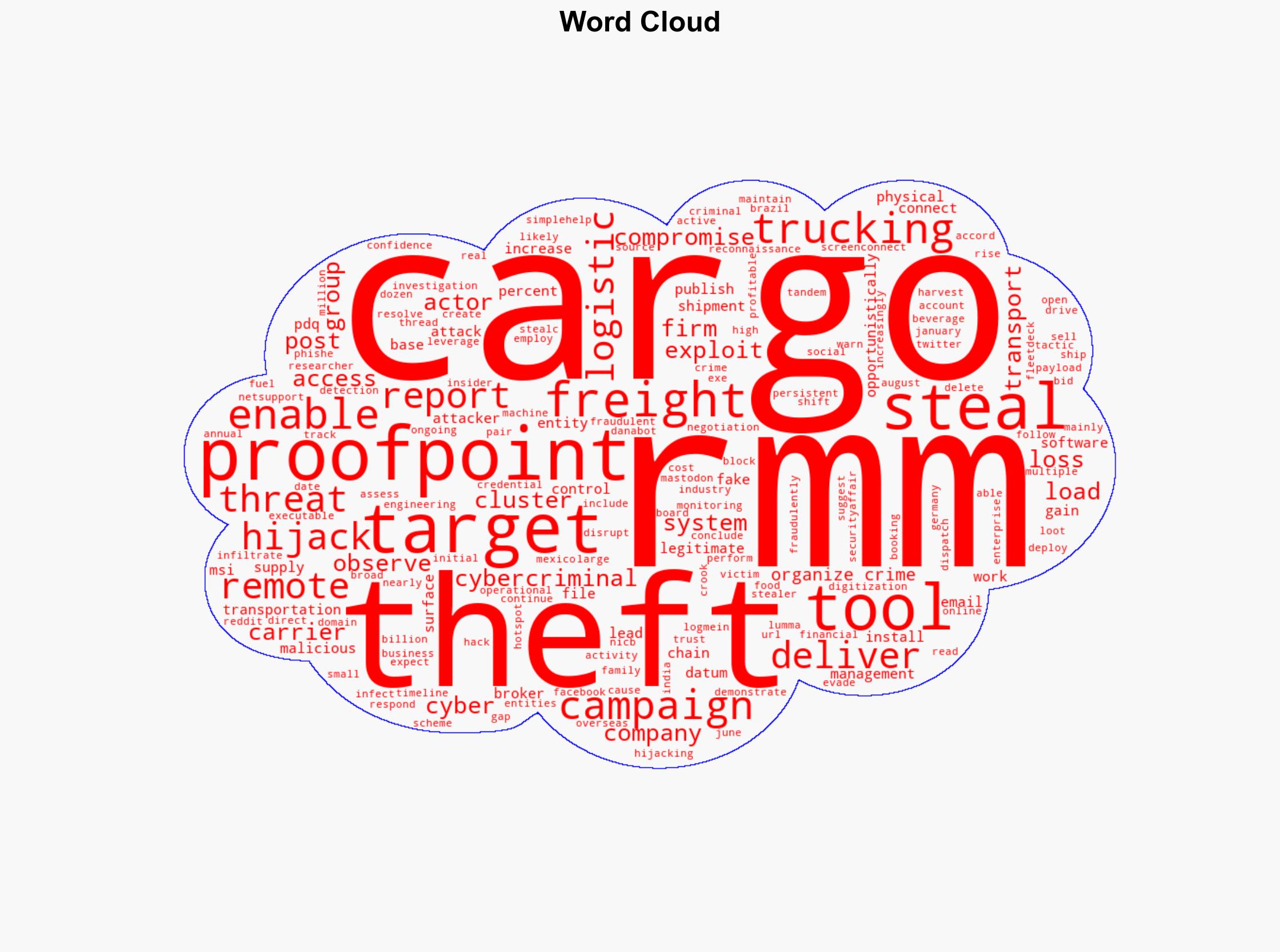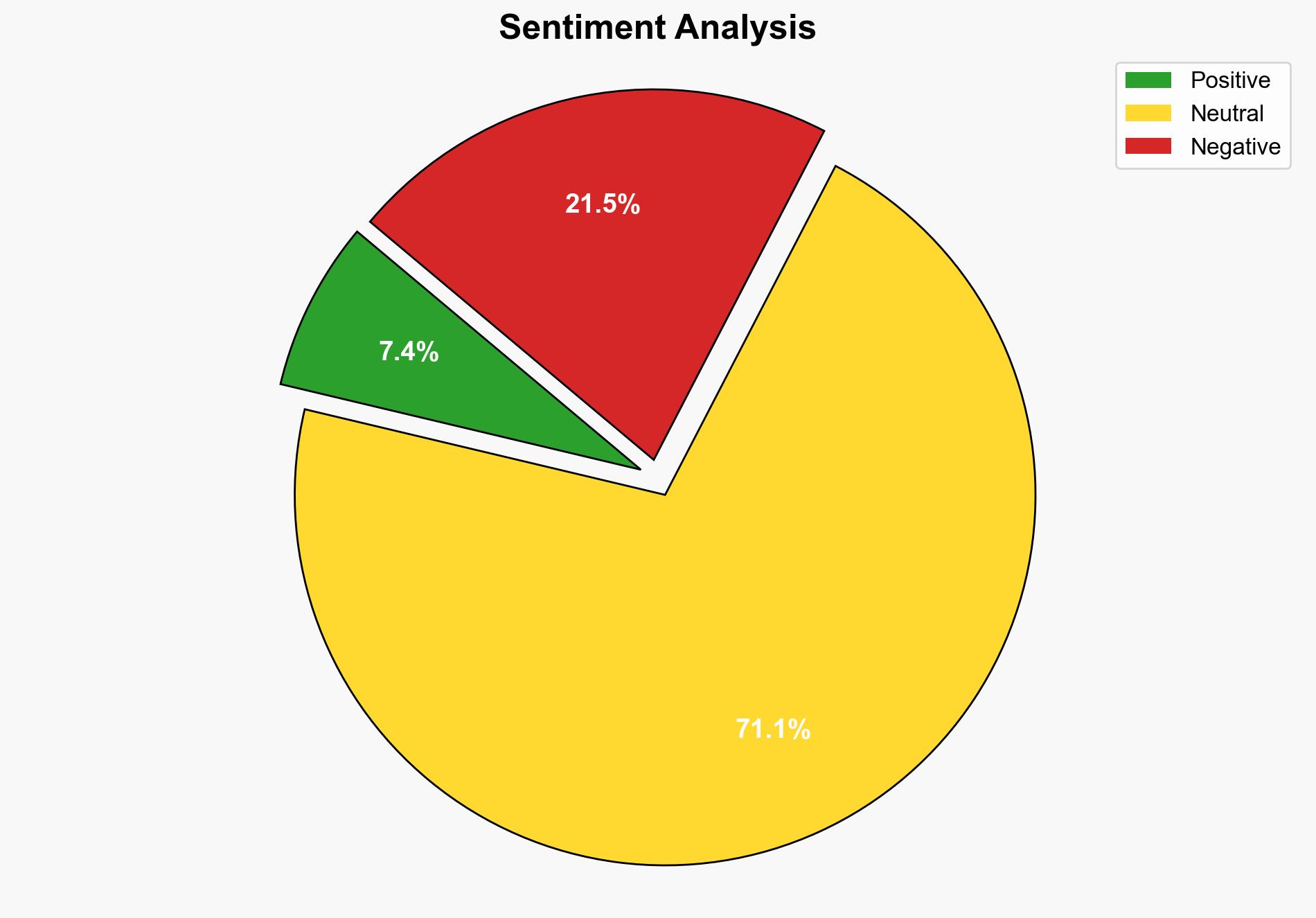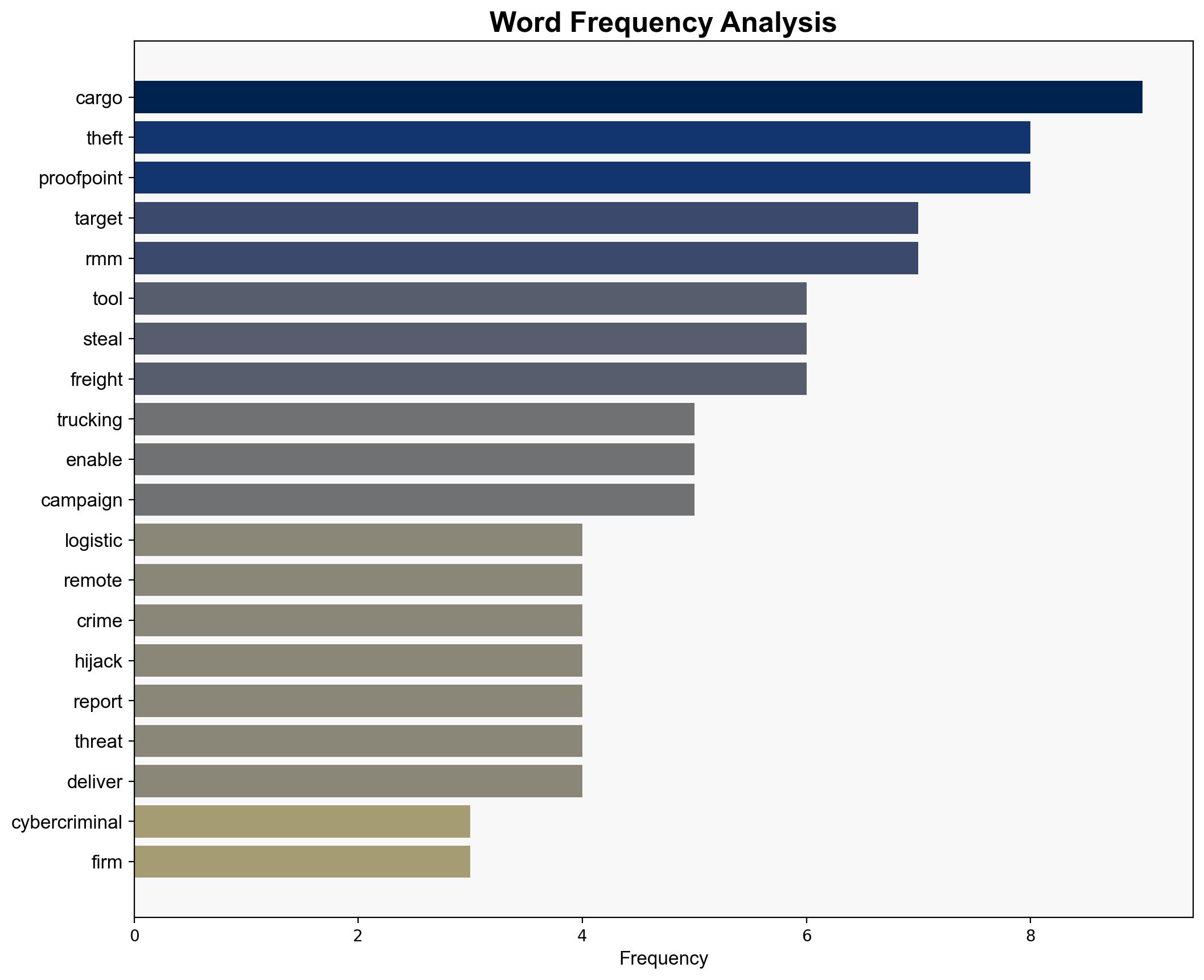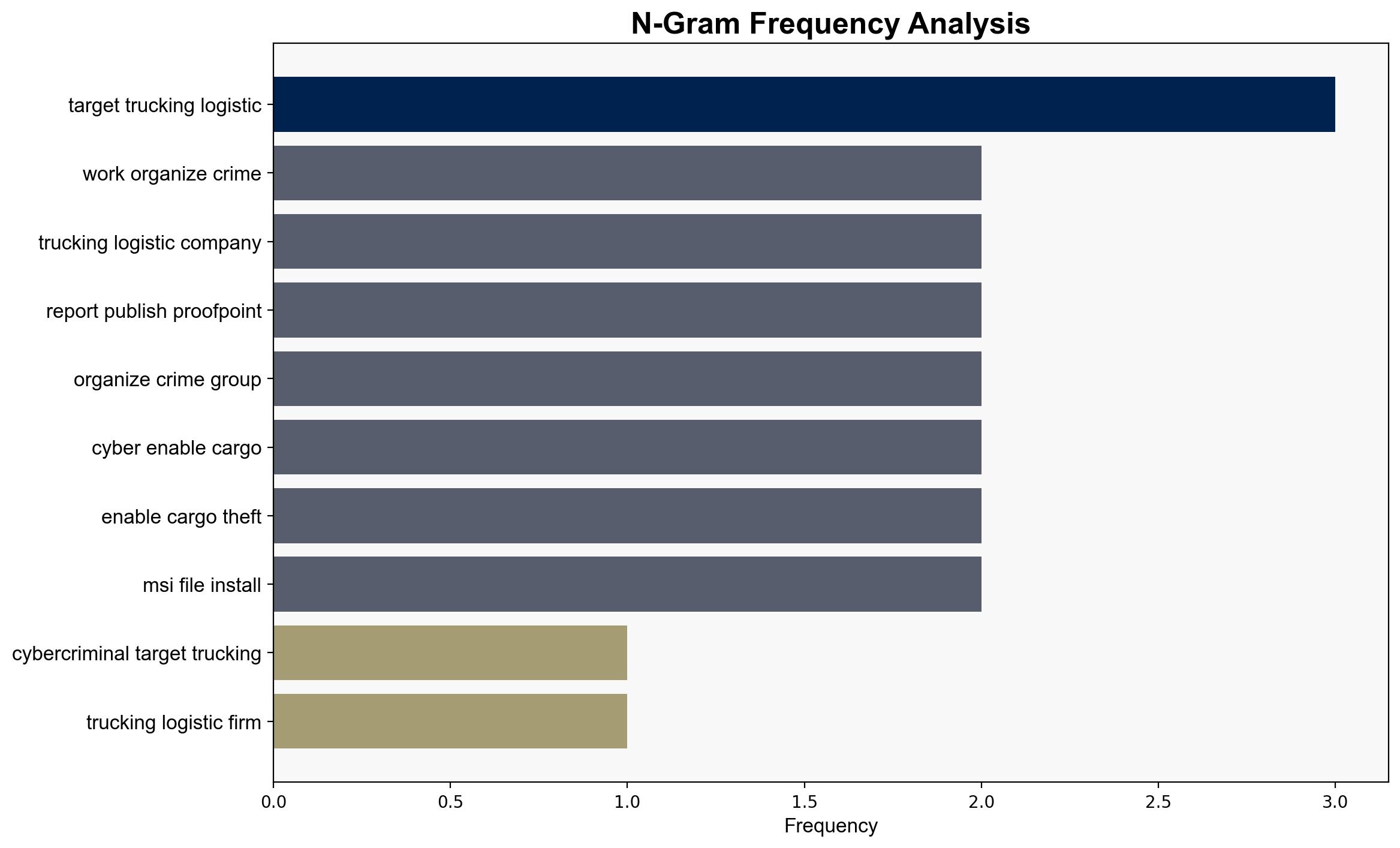Crooks exploit RMM software to hijack trucking firms and steal cargo – Securityaffairs.com
Published on: 2025-11-04
Intelligence Report: Crooks exploit RMM software to hijack trucking firms and steal cargo – Securityaffairs.com
1. BLUF (Bottom Line Up Front)
Cybercriminals are leveraging Remote Monitoring and Management (RMM) software to infiltrate trucking logistics firms, facilitating cargo theft. The most supported hypothesis suggests that organized crime groups are systematically targeting these firms for financial gain. Confidence in this assessment is high, given the structured analytic techniques applied. Recommended actions include enhancing cybersecurity measures within the logistics sector and increasing awareness of such threats among stakeholders.
2. Competing Hypotheses
1. **Hypothesis A**: Organized crime groups are using RMM software to systematically target trucking firms, aiming to hijack and steal cargo for resale or overseas shipment. This is supported by the observed coordination and sophistication in the attacks, as well as the financial motivations highlighted in the report.
2. **Hypothesis B**: Independent cybercriminals, not necessarily linked to organized crime, are opportunistically exploiting RMM software vulnerabilities to conduct cargo theft. This hypothesis considers the possibility of less organized, but still effective, cybercriminal activities driven by individual actors or small groups.
Using Analysis of Competing Hypotheses (ACH) 2.0, Hypothesis A is better supported due to the structured and coordinated nature of the attacks, as well as the high confidence assessment by Proofpoint linking these activities to organized crime.
3. Key Assumptions and Red Flags
– **Assumptions**: It is assumed that the use of RMM tools is a deliberate strategy by organized crime groups rather than a coincidental choice by independent actors.
– **Red Flags**: The report’s reliance on Proofpoint’s assessment could introduce bias if their data or analysis is flawed. Additionally, the lack of specific details on the geographical scope and scale of operations may indicate gaps in intelligence.
– **Blind Spots**: Potential underestimation of the role of insider threats or the involvement of other cybercriminal groups not yet identified.
4. Implications and Strategic Risks
The exploitation of RMM software in cargo theft poses significant risks to the logistics sector, potentially leading to increased insurance costs, disrupted supply chains, and economic losses. If these activities escalate, they could undermine trust in digital logistics systems and prompt regulatory scrutiny. The global nature of logistics means that these threats could have cascading effects on international trade and economic stability.
5. Recommendations and Outlook
- Enhance cybersecurity protocols in logistics firms, focusing on monitoring and securing RMM tools.
- Conduct sector-wide awareness campaigns to educate stakeholders on emerging threats and prevention strategies.
- Best-case scenario: Increased security measures successfully mitigate threats, reducing cargo theft incidents.
- Worst-case scenario: Cybercriminals adapt and escalate attacks, leading to widespread disruptions and financial losses.
- Most likely scenario: Continued cybercriminal activity with gradual improvements in security measures and threat response.
6. Key Individuals and Entities
– Proofpoint (source of threat intelligence)
– Cybercriminal groups (unnamed, potentially linked to organized crime)
7. Thematic Tags
national security threats, cybersecurity, counter-terrorism, regional focus





